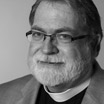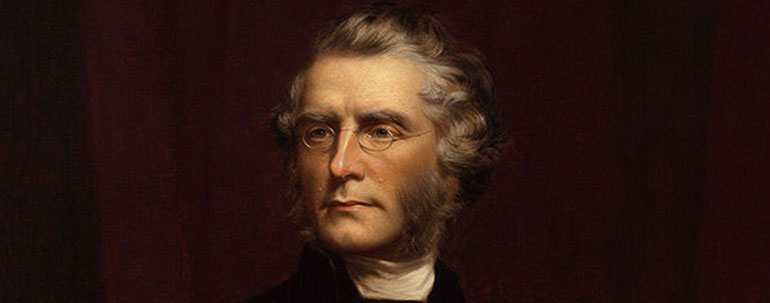Once upon the time there was a bishop—an Anglican bishop—who decided that you couldn’t trust the Bible. He claimed that the Bible was not clear about human sexuality and he rejected the Christian doctrine of marriage between one man and one woman. He wrote that the Bible was not historically trustworthy, and that we ought to prefer our own powers of reason and conscience to know God:
“…the living God, our Father and Friend, is nearer and closer to us than any book can be; that His voice within the heart may be heard continually by the obedient child that listens for it, and that shall be our teacher and guide in the path of duty, which is the path of life, when all other helpers — even the words of the best of books — may fail us.”
In other words, the Bible was among the best of books—one among many. But all those stories about miracles and “divine interventions” and the power of God to change us from the inside out—forget it. Instead, the Bishop began to commend the spiritual mansions one could find in other religions and their teachers.
Since the Bible was not trustworthy on the issue of marriage, the bishop began to openly question other things like the uniqueness of Jesus Christ as Lord and Savior of all, the reality of God’s judgment for unrepented sin, and more. As his views and teaching became known it caused great controversy within the Churches of the Anglican Communion.
Does this sound familiar? It should. But the Anglican Bishop I’m referring to is not from this century. It’s not John Spong of the Diocese of Newark. Nor is it Michael Ingham of New Westminster, Canada.
The Bishop in question is John Colenso of Natal, South Africa, who wrote and published these things from 1862-1879—more than a hundred years ago! 140 years before Bishops Spong and Ingham, Colenso was challenged by Anglican leaders who believed in the clarity and authority of the Bible.
But wait! There’s more to this story… As it turns out, some Anglican leaders decided to take action against Bishop Colenso’s denial of Biblical clarity and authority. In 1863 Archbishop Gray of Cape Town deposed the unrepentant Bishop Colenso. But Colenso denied the Bishop of Cape Town’s jurisdiction. He appealed to the “Judicial Committee of the Privy Council” in England which delivered a judgment in favor of Colenso. On a technicality, the court ruled that the “letters patent” appointing Colenso preceded those appointing Archbishop Gray over Cape Town. So as a matter of civil law, rather than the principle of archiepiscopal authority, Colenso went on his way.
Archbishop Gray went ahead and solemnly excommunicated Colenso in 1866 and consecrated a bishop in his place who would uphold the clarity and authority of the Bible. Now there were overlapping jurisdictions between the faithful bishop and Colenso. But this still didn’t stop Colenso. Having won in the courts, he decided to press his luck with further litigation. So he again appealed to the courts and won possession of the cathedral and other endowments of the diocese.
In other words, over 100 years before Anglicanism fractured in North America, we had the same elements in play in the Colenso affair: the rejection of Biblical clarity and authority by a diocesan bishop, rejection of Church discipline, overlapping jurisdiction and litigation over church property. Does this sound familiar?
But the story takes yet another familiar turn. Anglican Bishops around the world took offense at Bishop Colenso and the decisions of the civil courts. These actions necessitated a rethinking of authority in Anglicanism. So they appealed to the Archbishop of Canterbury, Charles Longley, to convene a council of bishops that would deal with specific concerns for doctrine and discipline raised by Bishop Colenso’s attack on biblical authority. Here then was an opportunity to implement an ancient, “conciliar” solution to problems of false teaching within a Church in the Anglican Communion. It was a proposal that would have created a “Synod” of the Anglican Communion to deal with matters of faith and order affecting the communion of Anglican Churches.
While Archbishop Longley certainly accepted that bishops were the proper invitees, he steered the meeting clear of being considered a council or Synod by declaring it a “conference” only, with no authority over the autonomous churches, especially the Church of England. Archbishop Longley’s decision was driven by the internal politics of the Church of England at that time. First, his authority as Archbishop of Canterbury to convene such a gathering was not as clear then as it is today. There was a question of which Province in the Church of England took precedence—Canterbury or York? Longley did not want to offend York. On the other hand, the Bishop of London had original jurisdiction over the colonies, and had a keen interest in the affairs of the “colony” of South Africa. So Longley did not wish to offend him either. Archbishop Longley went out of his way to resist any semblance of a council or Synod of bishops with authority over faith and order in the Church. He insisted that his authority was “limited” and therefore the first Lambeth Conference of Bishops (1867) became only an invitation to confer.
In other words, the theological integrity of the Communion of Anglican Churches took a back seat to the internal politics within the Church of England. Biblical clarity and authority within the Communion was sacrificed for the sake of keeping unity within the Church of England.
Over 100 years later the same dynamics are in play. Let us assume that the current Archbishop of Canterbury has a genuine, passionate commitment to “re-evangelize” England. He also wants to keep all of the benefits of an “established” Church, which has a unique public platform (as the established church) for such evangelism of the nation. But he faces a hostile secular culture in which the majority of a younger generation believes in same-sex marriage and finds the traditional Biblical view of marriage immoral. How can the established Church, the voice of morality within the nation, win back this population? The ABC also faces a divided Church, many of whose bishops and clergy no longer believe in the clarity and authority of the Bible. What will he do?
He will do exactly what his predecessors have done over the last 100 years. He will do whatever he needs to do to preserve the “unity” of the Church of England and its establishment, even if it means jettisoning Biblical clarity and authority on the issue of marriage and human sexuality. Like Archbishop Longley, he will checkmate any attempts by bishops to exercise their special responsibility to guard the faith and order of the Church—in Council, in Primates gatherings and in any other way that would upset the fragile “good disagreement” he is seeking to achieve in the Church of England.
And if, as expected, the Church of England does end up approving the recommendations of the Pilling Report, providing at the very least pastoral blessings for same-sex civil partnerships, thereby repudiating teaching that marriage is between a man and a woman, for life… Well, as Canon David Porter, Archbishop Justin Welby’s right-hand man, has reportedly said, it’s better to write off 20% of the Church of England, preserve the 80% of the Church of England who can live with “shared conversations” and “good disagreement,” and live another day for the evangelization of England when the dust settles. [Note: of course, this begs the question of what “gospel” will be left to share, as I will discuss next week.]
And what if Anglicans in the rest of the Communion object? They will have a choice to go down the same road travelled in 1867—to ignore the need for a genuinely conciliar solution to departures from the Christian faith, and to stay in Communion with the Church of England on its terms.
Or, the leaders of the Anglican Communion who believe in genuinely walking together under the Lordship of Jesus Christ, and the clarity and authority of God’s word can reject the internal politics of the Church of England. They can rescue the Communion with genuinely conciliar Instruments of Communion. As Paul Valliere notes in The History of Conciliarism, “the gatherings at Lambeth look like episcopal councils, yet they are not. In fact, they were purposely designed not to be councils.” How much longer will faithful Anglican allow the Communion to remain hostage to the internal politics of the Church of England? Why should we repeat history all over again?



